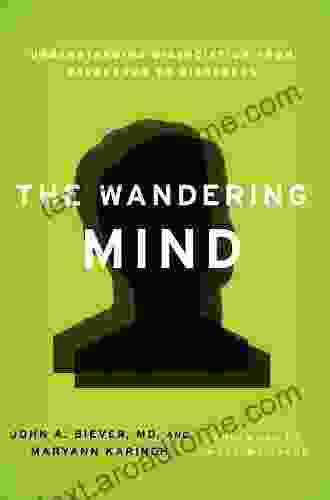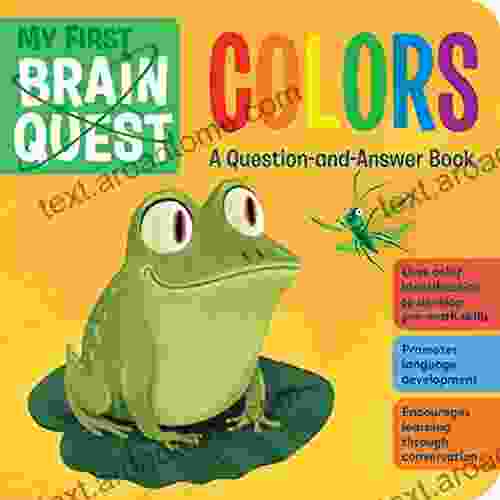Understanding Dissociation: From Daydreams to Disorders

Dissociation is a fascinating and often misunderstood phenomenon that can affect people of all ages and backgrounds. From everyday daydreams to complex dissociative disFree Downloads, dissociation is a spectrum of experiences that ranges from the ordinary to the extreme. In this comprehensive guide, we will explore the causes, symptoms, and treatment options for dissociation, providing you with a deep understanding of this complex phenomenon.
5 out of 5
| Language | : | English |
| File size | : | 513 KB |
| Text-to-Speech | : | Enabled |
| Enhanced typesetting | : | Enabled |
| Word Wise | : | Enabled |
| Print length | : | 185 pages |
| Screen Reader | : | Supported |
What is Dissociation?
Dissociation is a mental process that involves a detachment or separation from reality. It can occur in response to trauma, stress, or other overwhelming experiences, and it can range from mild to severe. Dissociation can affect a person's thoughts, feelings, memories, and sense of identity.
There are many different types of dissociation, including:
* Depersonalization: Feeling detached from your own body or mind * Derealization: Feeling detached from the world around you * Amnesia: Loss of memory for a specific event or period of time * Fugue: Loss of memory for your own identity and personal history * Multiple personality disFree Download (DID): A complex dissociative disFree Download characterized by the presence of two or more distinct personalities
Causes of Dissociation
Dissociation is often caused by trauma, such as childhood abuse, neglect, or witnessing violence. However, it can also be caused by other overwhelming experiences, such as natural disasters, accidents, or medical procedures.
Dissociation is a way for the mind to cope with overwhelming experiences by creating a mental separation between the self and the trauma. This can help to protect the person from the emotional pain and distress of the trauma, but it can also lead to other problems, such as difficulty functioning in everyday life.
Symptoms of Dissociation
The symptoms of dissociation can vary depending on the type of dissociation and the severity of the condition. Some common symptoms include:
* Feeling detached from your body or mind * Feeling detached from the world around you * Loss of memory for a specific event or period of time * Loss of personal identity * Feeling like you are in a dream or trance * Feeling like you are watching yourself from a distance * Hearing voices or seeing visions * Experiencing flashbacks or nightmares * Difficulty concentrating * Difficulty making decisions * Difficulty controlling your emotions * Feeling numb or emotionally disconnected * Feeling like you are not in control of your own body or mind
Treatment for Dissociation
Treatment for dissociation typically involves a combination of psychotherapy and medication. Psychotherapy can help you to understand the causes of your dissociation and develop coping mechanisms for managing your symptoms. Medication can also be helpful in reducing the severity of your symptoms.
There are a number of different types of psychotherapy that can be used to treat dissociation, including:
* Trauma-focused therapy: This type of therapy helps you to process the traumatic experiences that led to your dissociation. * Cognitive-behavioral therapy (CBT): This type of therapy helps you to identify and change the negative thoughts and behaviors that contribute to your dissociation. * Dialectical behavior therapy (DBT): This type of therapy helps you to regulate your emotions and develop healthy coping mechanisms.
Medication can also be helpful in reducing the severity of your symptoms. Some common medications used to treat dissociation include:
* Antidepressants * Antipsychotics * Mood stabilizers
Dissociation is a complex and often misunderstood phenomenon that can affect people of all ages and backgrounds. However, with the right treatment, people with dissociation can learn to manage their symptoms and live full and productive lives.
If you are experiencing any of the symptoms of dissociation, it is important to seek professional help. A therapist can help you to understand the causes of your dissociation and develop coping mechanisms for managing your symptoms.
5 out of 5
| Language | : | English |
| File size | : | 513 KB |
| Text-to-Speech | : | Enabled |
| Enhanced typesetting | : | Enabled |
| Word Wise | : | Enabled |
| Print length | : | 185 pages |
| Screen Reader | : | Supported |
Do you want to contribute by writing guest posts on this blog?
Please contact us and send us a resume of previous articles that you have written.
 Book
Book Novel
Novel Page
Page Chapter
Chapter Text
Text Story
Story Genre
Genre Reader
Reader Library
Library Paperback
Paperback E-book
E-book Magazine
Magazine Newspaper
Newspaper Paragraph
Paragraph Sentence
Sentence Bookmark
Bookmark Shelf
Shelf Glossary
Glossary Bibliography
Bibliography Foreword
Foreword Preface
Preface Synopsis
Synopsis Annotation
Annotation Footnote
Footnote Manuscript
Manuscript Scroll
Scroll Codex
Codex Tome
Tome Bestseller
Bestseller Classics
Classics Library card
Library card Narrative
Narrative Biography
Biography Autobiography
Autobiography Memoir
Memoir Reference
Reference Encyclopedia
Encyclopedia Marge Clark
Marge Clark Michael B Smith
Michael B Smith William Irwin
William Irwin Peter D Epiro
Peter D Epiro Martin Gilbert
Martin Gilbert Manoj Desai
Manoj Desai Marie A Boyle
Marie A Boyle Sebastian Farr
Sebastian Farr Marvin Terban
Marvin Terban Ryan Lester
Ryan Lester Paul Te Braak
Paul Te Braak Stefan Kanfer
Stefan Kanfer Vaclav Rybacek
Vaclav Rybacek Win Blevins
Win Blevins Mark Moyar
Mark Moyar Mark Hertsgaard
Mark Hertsgaard Matt How
Matt How Sue Downing
Sue Downing Mariusz Rosik
Mariusz Rosik Simba Mudonzvo
Simba Mudonzvo
Light bulbAdvertise smarter! Our strategic ad space ensures maximum exposure. Reserve your spot today!
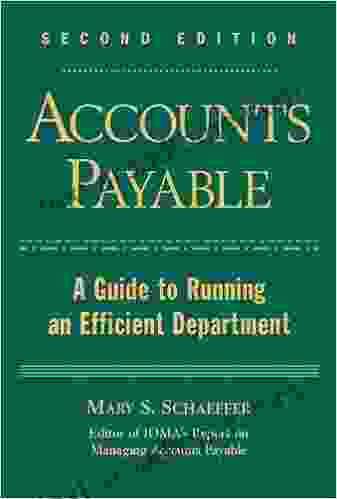
 Bobby HowardThe Ultimate Guide to Running an Efficient Department: Empower Your Team and...
Bobby HowardThe Ultimate Guide to Running an Efficient Department: Empower Your Team and...
 Jarrett BlairMore Secrets of the Millionaire Mind: Uncover the Keys to Success and Wealth
Jarrett BlairMore Secrets of the Millionaire Mind: Uncover the Keys to Success and Wealth
 Dalton FosterUnleash the Power of the Bash Shell: The Comprehensive Guide to Automating...
Dalton FosterUnleash the Power of the Bash Shell: The Comprehensive Guide to Automating... Shawn ReedFollow ·18.1k
Shawn ReedFollow ·18.1k Winston HayesFollow ·14.6k
Winston HayesFollow ·14.6k Ian MitchellFollow ·15.9k
Ian MitchellFollow ·15.9k Tennessee WilliamsFollow ·8.5k
Tennessee WilliamsFollow ·8.5k Dennis HayesFollow ·14.4k
Dennis HayesFollow ·14.4k Angelo WardFollow ·18.8k
Angelo WardFollow ·18.8k Eric NelsonFollow ·2.5k
Eric NelsonFollow ·2.5k Ernesto SabatoFollow ·4.8k
Ernesto SabatoFollow ·4.8k
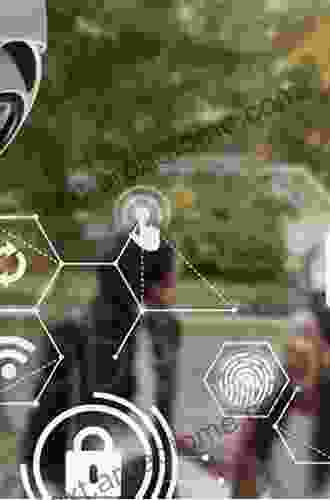
 Ralph Ellison
Ralph EllisonIntelligent Video Surveillance Systems: The Ultimate...
In a world...

 Jeffrey Cox
Jeffrey CoxThe Origins of the Modern World: A Journey to the Roots...
Embark on an Extraordinary...
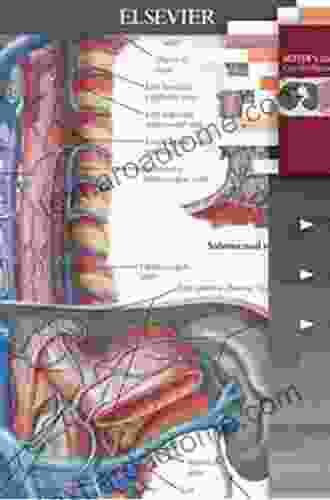
 Paulo Coelho
Paulo CoelhoUnlock the Power of Integrated Medical Imaging with...
In the rapidly evolving...

 Charles Reed
Charles ReedThe Christ of the Covenants: Unlocking the Mystery of...
Embark on a Profound...
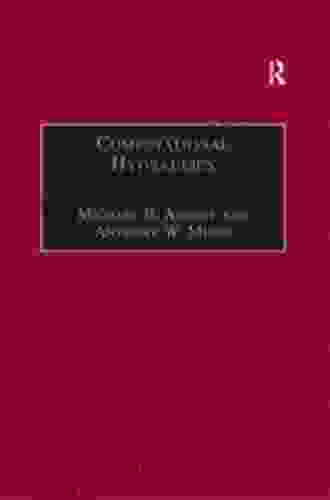
 Elton Hayes
Elton HayesComputational Hydraulics: A Comprehensive Guide for...
In the realm of fluid dynamics,...
5 out of 5
| Language | : | English |
| File size | : | 513 KB |
| Text-to-Speech | : | Enabled |
| Enhanced typesetting | : | Enabled |
| Word Wise | : | Enabled |
| Print length | : | 185 pages |
| Screen Reader | : | Supported |


